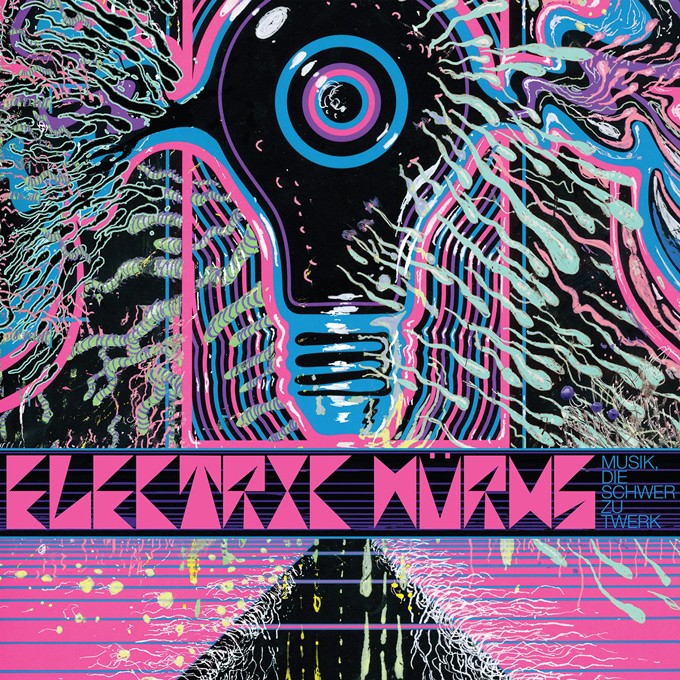Usually, there’s a certain taste of discontentment marking the birth of a side project, be it a member feeling unable to scratch a creative itch or a frustration with one’s role and scope thereof within a group.
The former would seemingly never be the case for The Flaming Lips, the Michael Jordan of scratching and digging at every creative whim until blood is drawn. And the fact that Wayne Coyne and Steven Drozd decided to undertake Electric Würms together would seem to negate the latter, as well.
Sure, the new project gives Coyne a chance to dance in the shadows as Drozd soaks up the spotlight. But given the largely freeform nature of the songs found in the band’s debut album, Musik, die Schwer zu Twerk, stage plots seem like a tertiary concern at best.
There really isn’t a how, why or what to Electric Würms. It just is, and maybe that’s the point — to take it at face value and attempt to listen without the legacy of The Flaming Lips ringing in your ear.
That’s an impossible request, even with the new crew of Nashville rockers Linear Downfall backing the starring duo, but the distinction does create at least a little distance between tracks like “I Could Only See Clouds” or “The Bat” and those heard on Embryonic or The Terror. Namely, Würms are more intent to construct bizarre little vignettes of noise than songs in the traditional sense, translating to a challenging, occasionally uneven but undeniably immersive trip down the würmhole.
Take, for instance, “Futuristic Hallucination,” a jazz club jam experienced peak-acid trip. Its drum patters and bass swerves rock back and forth like they were stapled to the head of a life-sized bobble head doll, swinging deep into your cranial cavity and out of your ears again. “I Could Only See the Clouds” opens the album on a similar track, the first wisps of an impending high and the most upbeat Drozd and Coyne get here, as (purposefully) distant and warbled as the echoes might be.
Würms cites its affection for ’70s prog rock in relation to how the project and album were born, but “Living” is the only outing willing to stretch itself into the sprawling, seven-plus-minute movement you expected from those talented but indulgent forefathers. Yet the expected musical whims, turns, riffs and time signature shifts are dropped in favor of cyclic reverberation and little more, a long and winding interdimensional fall wherein the protagonist dissolves before he can crash into anything meaningful. If it is, in fact, living at all, it’s doing so in a vegetative state.
All the energy gutted by “Living” is quickly — and thankfully — restored by “Transform!!!” doing just that for the album itself and finding Würms’ watershed moment in the process. In that cathartic, Miles Davis-gleaned four minutes of beautiful mayhem, the band is reborn in a tub of sweat. The song echoes Embryonic, to be sure, but never in Musik’s 30-minute runtime do Würms more resemble a singularity than just a new limb.
The shyly sweet “Heart of Sunrise” closes out the album with Drozd and Coyne ironically stripping down the mammoth Yes classic into a bite-sized, Antarctic folk-pop song in the face of five songs that ward off hooks like the plague. Then again, Electric Würms is about only expecting the unexpected, and in that finishing statement, the band reinforces just that.












